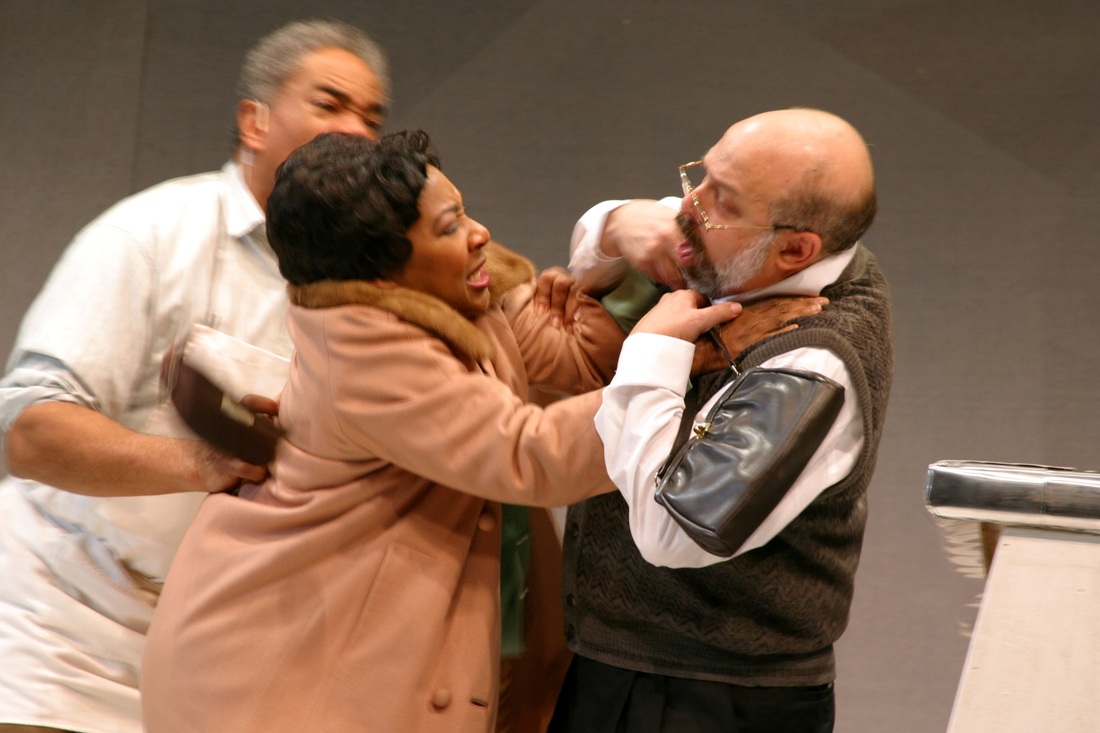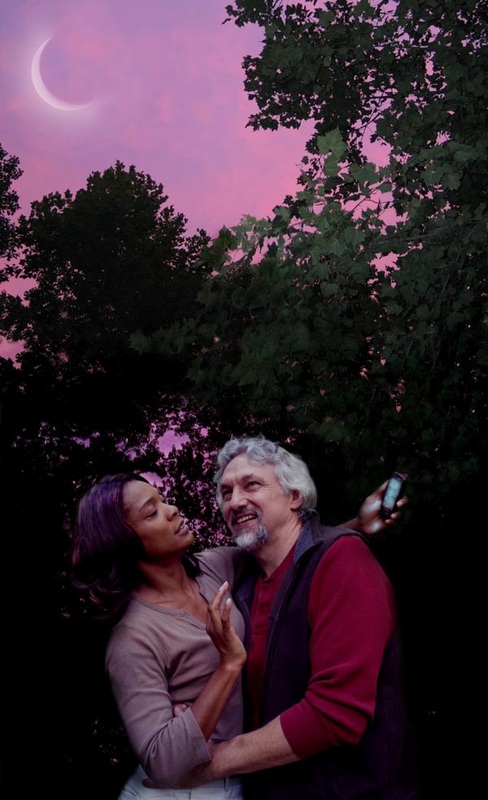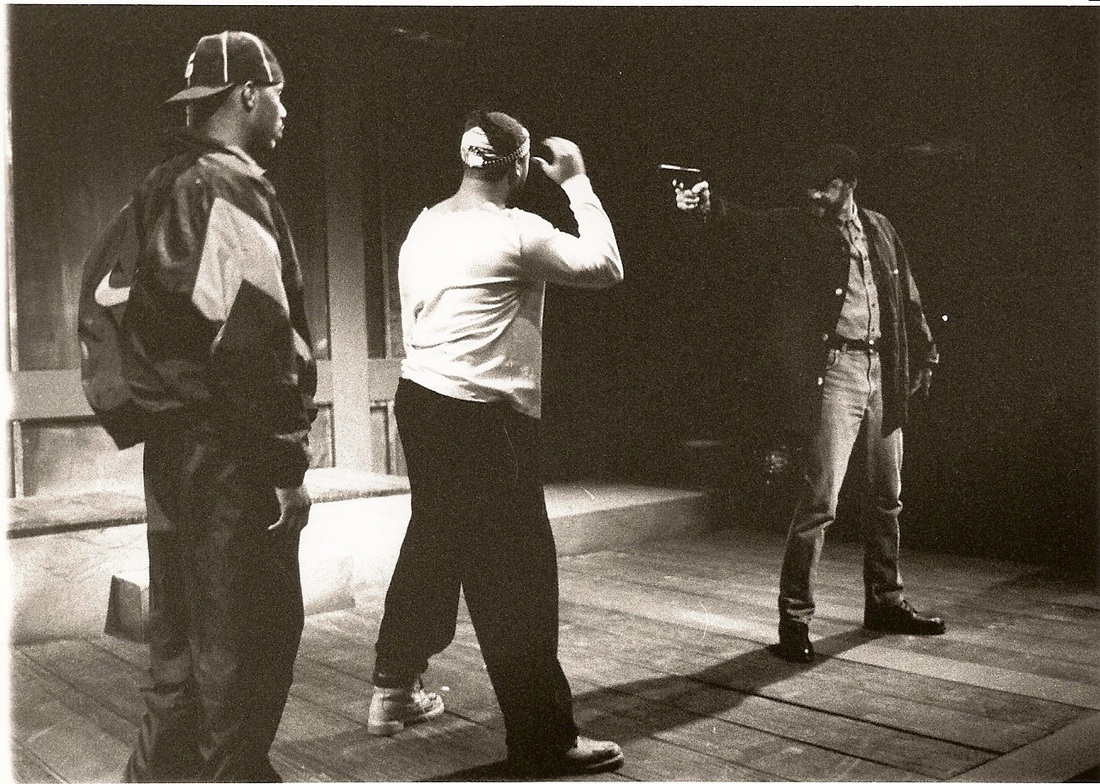|
Jacqueline Lawton: How long have you lived and worked as a playwright in DC? What brought you here? Why have you stayed?
Jennifer L. Nelson: I came to Washington in 1972 to work with the Living Stage Theatre Company (LSTC), which was the community outreach program of Arena Stage. LSTC was completely improvisational and devoted to the mission of making art that would make a difference in the lives of children and adults, who had been left out of the middle class vision of America. I had done a little playwriting in grad school (before I dropped out), but had no real intention of becoming a playwright. In truth, I was much more focused on using theatre to save the world than on any personal theatre-related goals. Ah, youth! Over the years, LSTC became interested in preserving some of our best improvised scenes and I became the designated scripter. Eventually, I began writing short plays that were completely of my own devising, customized for LSTC’s social mission and cast. Since then, I have left DC twice (first to NYC, then to LA) and each time came back for personal and professional reasons. It’s been a good place for me. As Kurt Vonnegut wrote “wherever you go, there you are.” JL: Have you ever been a member of a DC area playwrights writing group? If so, did you find it useful? Would you recommend that other playwrights join them? JLN: I have not been part of any playwrights’ writing group. I used to be a poet and I was part of a poet’s group for a while which was insightful. I was more involved with the local women’s poetry community than I have ever been with the playwrighting community. Go figure. JL: In DC, we have the Capital Fringe Festival, the Intersections Festival, the Source Theatre Festival, the Kennedy Center's Page-to-Stage Festival, the Black Theater Festival, and the Hip Hop Theatre Festival. We also have the Mead Lab at Flashpoint Theater Lab Program. Have you participated in any of these? If so, can you speak about your experience? JLN: I have had two plays read in the Page-to Stage Festival. It is a good opportunity to hear one’s script in front of an objective audience, but there does not ipso facto guarantee you’ll have an audience other than your friends. My play 24, 7, 365 was produced by Theater of the First Amendment and featured as part of the Intersections Festival. Once I became a small theatre producer, much of my focus turned to directing and supporting/developing the work of other writers. I produced plays that went to the Black Theatre Festival and the Hip Hop Theatre Festival. I’m very proud of my record of producing work of young writers. After the production of my play that got the Helen Hayes MacArthur Award (Torn From the Headlines) most my artistic energies were outer-directed and my own work took a waaaay back seat. JL: What kind of work do you do to pay the bills? How do you balance this work with your writing? JLN: I am currently Director of Special Programs at Ford’s Theatre. Before that, I was Producing Artistic Director of African Continuum Theatre (ACTCo). I also am a freelance director and have been an adjunct professor at American University, George Washington University, Georgetown University and (upcoming) University of Maryland College Park. I do not teach playwriting. JL: How many plays have you had produced in the DC area? Were any of these plays self-produced? If so, where and what did you learn from that experience? JLN: I’ve never had a full length play produced anywhere else. Torn from the Headlines was “semi-self” produced. It was a co-pro of an earlier version of African Continuum and Everyday Theatre, a now defunct social outreach arts organization where I was then employed. Then Hubert & Charlie was produced through what later became African Continuum. What did I learn? Don’t self produce if you can help it. Of course, it can be done, but the writer is better served if there is a trusted, supportive and objective eye. There is so much more to producing than putting your script into actors’ hands. JL: If you could be produced at any theatre in DC, which would it be and why? JLN: ... I prefer not to have those fantasies. JL: DC audiences are ... JLN: ...responsive to diversity on stage. JL: DC actors, designers and directors are ... JLN: …smart, talented, ambitious, multi-generational, creative. JL: DC critics are ... JLN: ...a necessary adjunct to The Way Things Are. JL: How do you feel the DC theatre community has addressed the issues of race and gender parity? How has this particular issue impacted you and your ability to get your work produced on the main stages? JLN: In my long career here, the theatre community has made huge steps in terms of inclusion of ethnic diversity on stages especially in terms of actors. A prime example is how August Wilson’s popularity opened a door in so-called mainstream theatres for plays about the African American stories. Not surprisingly, most of Wilson’s characters are male. Big steps followed by smaller steps. The DC theatre community is not too different from the national theatre community in this. Issues of race and gender are mostly addressed on stage in vehicles that are profitable for the theatres. For example, when a high profile playwright or actor is attached to a piece of work, it will jump to the top of the desirability chart. If a play is a big hit in New York, the larger regionals will pile on to bring that play to their communities. The playwrights may or may not be brilliant, but what is really at stake is theatres’ bottom line. They’d be foolish not to pick plays that have the most likelihood of selling tickets. Of course, there are exceptions to this: theatres that were willing to take risks based on their own values. We’re seeing some really wonderful and daring new work in smaller theatres that don’t have as much at risk. Unfortunately, they also don’t pay as big royalties. It would be convenient to blame the relative invisibility of my own work on race and gender bias but who knows? JL: What advice do you have for an up and coming DC based playwright or a playwright who has just moved to D.C.? JLN: Write what’s in your heart and don’t pin your identity on what anybody else thinks. JL: What's next for you as a playwright? Where can we keep up with your work? JLN: I’m interested in writing about baseball and slavery. I don’t know what's next. You can visit my website: jenniferlnelson.net
1 Comment
Your comment will be posted after it is approved.
Leave a Reply. |
My BlogI'm a playwright, dramaturg, and teaching artist. It is here where you'll find my queries and musings on life, theater and the world. My posts advocate for diversity, inclusion, and equity in the American Theatre and updates on my own work. Please enjoy!
Categories
All
Archives
June 2020
Reading List
|



